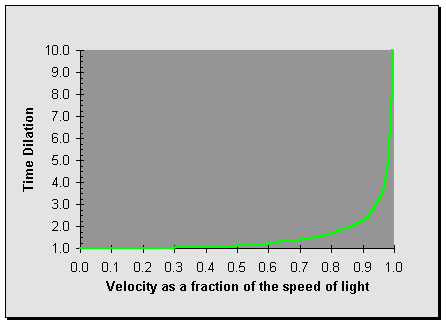Daedalean's_Sun
New member
and it doesn't even exist
Time exists insofar as space exists.
and it doesn't even exist
Time exists insofar as space exists.
space doesn't exist either
Prove it.Yes, time is of course relative as Einstein discovered.
Is your argument so weak you must rely on Wikipedia? Lame.
Is your argument so weak you must rely on Wikipedia? Lame.
Pay attention Open Theists: Once you have something controlling God, like time, He is no longer God. Do you understand this?Prove it.
Once you have something controlling God, like time, He is no longer God.
Was Jesus "controlled" by time when He was on Earth?
The thing about it is He said, my kingdom is not of this world, and I think what he meant was diminsions, or spiritual
Nick M, citing NPR...?
No answer to the question? Did he predict for gravity effecting clocks, or time dilation from gravity? Which was it.
http://www.npr.org/2013/08/22/214186448/the-worlds-most-precise-clock-could-prove-einstein-wrong
Einstein also predicted that clocks in different gravitational fields would tick at different speeds. For example, a clock in Boulder, Colo., which is a mile above sea level, would feel a slightly weaker gravitational pull than a clock at sea level in Washington, D.C. As a result, it would tick just a bit faster — and after 200,000 years it would be a full second ahead.
In his prediction, was it because of time dilation, or gravity changing the mechanics of the clock?
The one causes the other. There is no OR.
Gravity affects all natural processes in exactly the same way. Clocks, molecular changes and chemical reactions, diffusion rates, atomic emission and absorption frequencies, nuclear decay rates, resonances, electrical oscillations, quartz movements...
If time doesn't govern the rate of everything happening
How could you measure it?
What is strange, I gave you the link and you didn't even read it. Here you go.
What a makes a good clock? Andrew Ludlow, a physicist at the National Institute of Standards and Technology, says one of the most important criteria is stability.
"If you could imagine a grandfather clock and see the pendulum swinging back and forth, ideally that pendulum would swing back and forth very uniformly," Ludlow says. "Each swing would take exactly the same amount of time."
That's stability. But what if something perturbs the system, like a mischievous toddler?
"Imagine that toddler shaking the grandfather clock itself — that oscillation period could vary quite a bit," Ludlow says. "How much that ticking rate varies determines the precision with which you can measure the evolution of time."
In other words, time dilation will appear to shrink. And in your fantasy land, you think time is physical and is changing the clock. Not the current in the watch and the consistent vibration of the quartz. It shouldn't matter if time is what moved the clock, and not the spring tension, current, or other mechanism.

The effect of time dilation has been reproduced with both digital, and atomic clocks in various contexts, resulting in the same pattern. A pattern that is very predictable as it turns out
